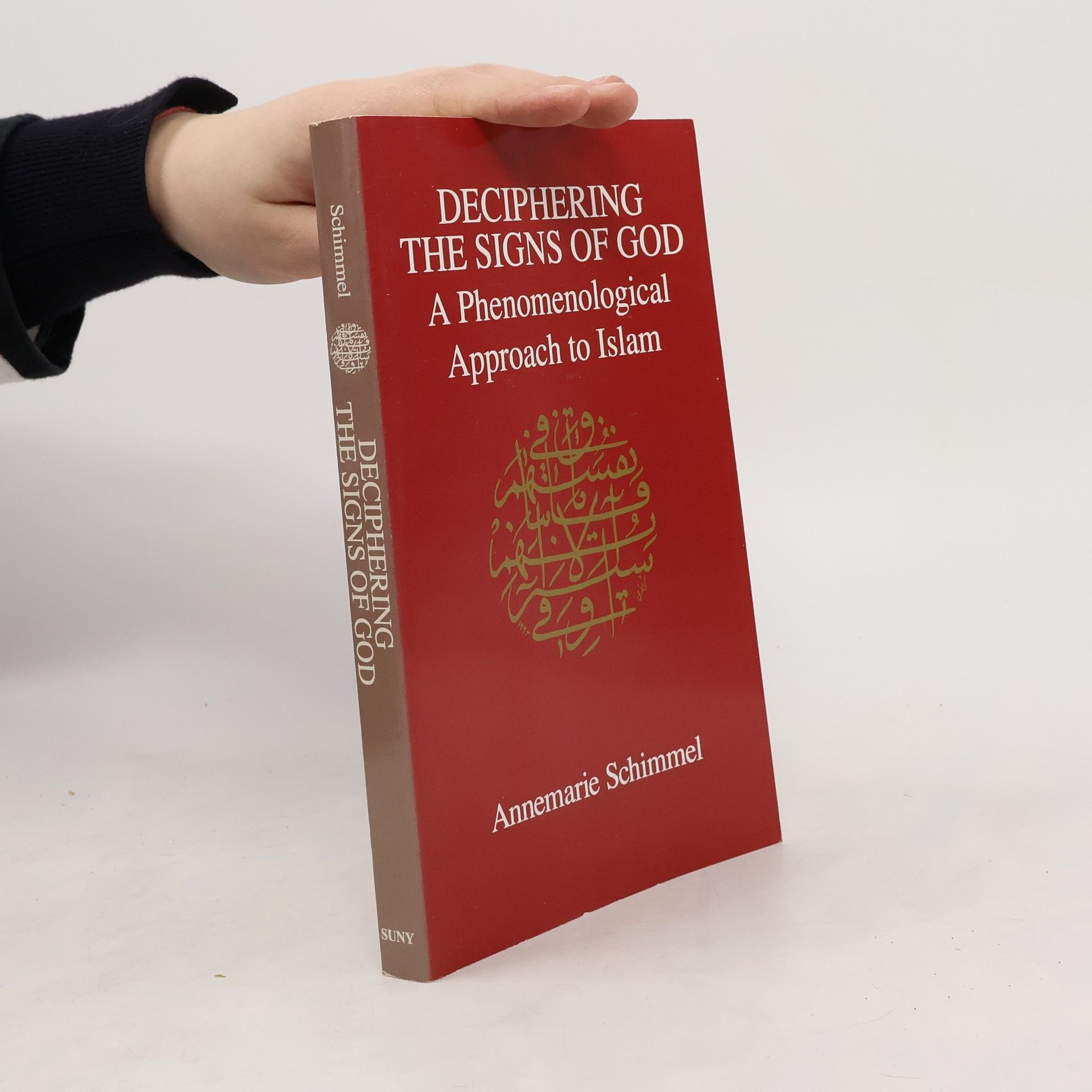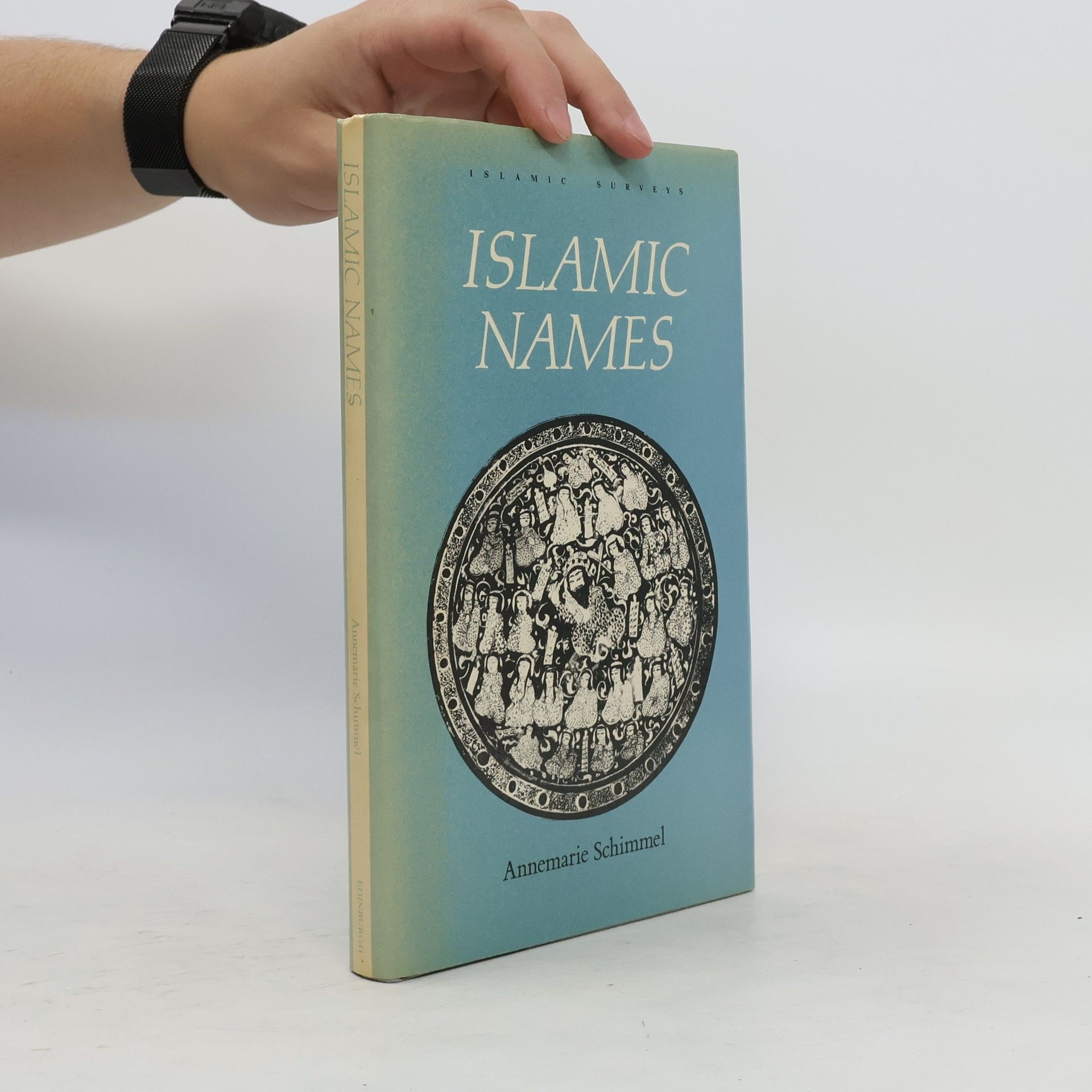Islamic Names
- 137pages
- 5 heures de lecture
Guiding Western readers through the endlessly fascinating and complicated system of Islamic personal names, Annemarie Schimmel's directory touches upon almost every aspect of Islamic life.
Universitaire allemande spécialisée dans l'orientalisme et l'Islam, elle a consacré son œuvre extensive à éclairer le monde de l'Islam et du Soufisme. Ses écrits ont exploré en profondeur les traditions spirituelles et culturelles de l'Islam, se concentrant souvent sur ses dimensions mystiques. Son approche alliait une rigueur académique à une compréhension profonde de ses sujets. Elle a ainsi significativement contribué à faire découvrir aux lecteurs occidentaux la richesse de la pensée et de la spiritualité islamiques.







Guiding Western readers through the endlessly fascinating and complicated system of Islamic personal names, Annemarie Schimmel's directory touches upon almost every aspect of Islamic life.
This is a book on Rumi's life, his poetry, his thought, and his influence. Rumi's work forms one of the pillars of the Sufi orders, particularly the Mevlevi order, better known in the West as the Whirling Dervishes. In this book Rumi emerges not only as a spiritual master, but also as a fully human being grounded firmly in the Koran and in classical Islamic mysticism.The light of the Divine Sun, in its Beauty and Majesty, manifested itself for Rumi through the person of Shams of Tabriz. Transformed by this light, consumed by this fire, Mowlana Rumi saw the world in a new light. Everywhere he perceived God's Grandeur and his Grace.The book also discusses the theological premises upon which Rumi's work rests, his attitude to the problems of free will and predestination, and his analysis of the mystical stages and stations. The book not only gives a very rich analysis of Rumi's language and poetical art, but also a picture of medieval Konya, whose features the mystical poet transforms and transfigures.
Includes bibliographical references and index.
The Qur'an constantly exhorts people to 'look at the signs of god,' signs that are hidden 'in the horizons and in themselves.' This book examines the mysteries of Islam using a phenomenological method to come closer to the true center of Muslim belief.Schimmel takes as her starting point the simplest 'signs of god'— natural phenomena like stones, plants and animals, and their use in religious and symbolic language. She then moves on to less obvious signs, such as sacred time and space, ritual actions, forms of worship, the sacred individual, and the order of the community. She concludes with an examination of the individual's response to the mystery of the Divine. Based on both original classical sources and modern literature, as well as the author's considerable personal experience, this is not only a fascinating survey of Islamic practices and beliefs, but also a broad and integrated overview of the phenomenology of Islam.
The life of Rumi, a 13th-century Persian poet, is explored through his transformation from a quiet religious teacher to a figure of mystical ecstasy after meeting Shams Tabriz. This encounter ignites Rumi's prolific poetry, expressing his yearning for the Divine Beloved, symbolized by Shams. The book delves into the significance of Rumi's work, including the invention of the Melevi dervishes' whirling dance, and features translations of his most notable poems, providing insight into his profound spiritual journey.
"Wahrlich, Gott ist schön und liebt die Schönheit", spricht der Prophet. Und weil er dies so sagen kann, gibt es im Islam den breiten Strom einer Weisheitsliteratur, die neben der heiligen Schrift des Koran und den Hadithen, den Aussprüchen und Taten des Propheten, die dritte Säule in der Vermittlung des Glaubens und des richtigen Lebens darstellt. Annemarie Schimmel hat eine längst klassisch gewordene Anthologie islamischer Weisheitsliteratur für Reclam zusammengestellt, die nun in neuer, schöner Ausstattung fortlebt.
Das Buch vermittelt einen umfassenden Überblick zur islamischen Mystik (Sufismus). Neben einer Begriffsklärung bietet es einen historischen Abriß von der Frühzeit bis al-Ghazali (1111 gest.). Im Anschluß werden der Pfad des Mystikers, der Weg zur Vollkommenheit und die Organisationsformen, der theosophische Sufismus, die persische und türkische mystische Dichtung und der Sufismus in Indo-Pakistan vorgestellt.
Wer eine fremde Religion oder Kultur verstehen will, sollte sich zuerst mit ihren Festen und ihren Zeitvorstellungen vertraut machen. Das gilt in besonderer Weise für den Islam, dessen Kalender stark von unserem abweicht. Dieses Buch führt allgemein-verständlich in den islamischen Mondkalender, die Bedeutung der einzelnen Monate und Wochentage sowie die Jahreszählung ein. Es beschreibt die wichtigsten Feste wie das Opferfest oder das iranische Neujahrsfest, die Pilgerfahrt nach Mekka und den Fastenmonat Ramadan. Annemarie Schimmel versteht es meisterhaft, aus dem reichen Schatz ihrer persönlichen Erfahrungen in vielen Gegenden der islamischen Welt zu schöpfen und zugleich die Geschichte der Feste unter Rückgriff auf bisher kaum bekanntes Quellenmaterial zu erzählen.
Das Buch vermittelt einen umfassenden Überblick zur islamischen Mystik (Sufismus). Neben einer Begriffsklärung bietet es einen historischen Abriß von der Frühzeit bis al-Ghazali (1111 gest.). Im Anschluß werden der Pfad des Mystikers, der Weg zur Vollkommenheit und die Organisationsformen, der theosophische Sufismus, die persische und türkische mystische Dichtung und der Sufismus in Indo-Pakistan vorgestellt.
Die von der bekannten Islamwissenschaftlerin – Friedenspreis des Deutschen Buchhandels 1995 – am Leitfaden des christlichen Vaterunsers zusammengestellten wunderschönen islamischen Gebete erfreuen sich auch unter Christen großer Beliebtheit und haben sich – häufig rezensiert und gelobt – gerade in der Praxis interreligiöser Begegnung einen festen Platz erobert. 'O Gott, was immer Du mir an weltlichem Gut zugeteilt hast, gib es Deinen Feinden, und was Du mir an jenseitigem Gut zugedacht hast, gib es Deinen Freunden – Du bist genug für mich.' (Rabia)